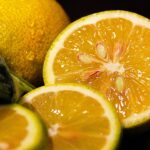
Overview
Vitamin B12 is an essential nutrient crucial for several bodily functions, including red blood cell production, nerve health, and DNA synthesis. A deficiency in this vitamin can lead to various symptoms affecting your physical, mental, and neurological health. In this comprehensive guide, we’ll explore the signs of Vitamin B12 deficiency, its causes, and how to address it effectively.
What is Vitamin B12?
Vitamin B12, also known as cobalamin, is a water-soluble vitamin found naturally in animal-based foods. It plays a vital role in red blood cell formation, brain function, and nerve health. Since the body doesn’t produce Vitamin B12, it must be obtained through diet or supplements
Symptoms of Vitamin B12 Deficiency
- Numbness and Tingling
A sensation of “pins and needles” in your hands, feet, or legs is often a sign of nerve damage caused by a lack of Vitamin B12. This occurs because B12 is essential for maintaining the protective sheath around your nerves.
- Persistent Fatigue
Do you feel tired or weak despite getting enough rest? Low B12 levels can impair red blood cell production, reducing oxygen delivery to tissues, which results in fatigue. This condition is called megaloblastic anemia
Related : Proven Ways to Lose Weight Without Diet or Exercise
- Pale or Yellow Skin

B12 deficiency can result in pale skin due to a lack of healthy red blood cells. In severe cases, damaged red blood cells release bilirubin, which may give your skin or eyes a yellowish tinge, a condition known as jaundice.
- Brain Fog and Cognitive Decline
A lack of Vitamin B12 can affect cognitive functions, leading to confusion, memory issues, difficulty concentrating, depression, and even dementia in severe cases.
- Muscle Weakness
When your body lacks B12, your muscles may feel weak or unable to perform everyday tasks efficiently. This is due to reduced oxygen delivery caused by anemia.
- Cold Sensitivity
Do you feel unusually cold, particularly in your hands and feet? Low B12 can result in poor circulation and low oxygen levels, making you more sensitive to cold.
- Smooth or Sore Tongue
A lack of Vitamin B12 can cause atrophic glossitis, where the tongue becomes smooth, red, and sore. This condition may also make eating and speaking uncomfortable.
- Headaches and Migraines
Frequent headaches or migraines are commonly reported in individuals with Vitamin B12 deficiency. Studies suggest that people with higher B12 levels experience fewer migraines compared to those with lower levels
- Heart Palpitations

An irregular or racing heartbeat might indicate anemia caused by low B12. Regularly including B12-rich foods like fish, eggs, and chicken in your diet can help
Related : What Happens if You Drink Too Much Water?
Related : Best Spices to Boost Your Metabolism, According to a Dietitian
- Digestive Issues
B12 deficiency can lead to constipation, loss of appetite, or unexplained weight loss. Severe cases may require B12 injections to ensure proper absorption.
- Mouth Ulcers
Painful sores on your gums or tongue are a possible sign of B12 deficiency. Avoid acidic or spicy foods that can irritate these ulcers, and consult a healthcare provider for diagnosis.
- Mood Changes and Depression
Low Vitamin B12 is associated with mood disorders such as depression and anxiety. This is often linked to elevated homocysteine levels, which can affect brain function.
- Vision Problems
A deficiency in Vitamin B12 can damage the optic nerve, resulting in blurred or double vision. Early treatment can often reverse these symptoms.
- Pins and Needles Sensation
Known as paresthesia, this tingling sensation in the extremities is a common symptom of B12 deficiency. If left untreated, it could lead to long-term nerve damage
Related : Is Olive Oil or Avocado Oil Better for Cooking?
Causes of Vitamin B12 Deficiency
- Dietary Restrictions
Plant-based foods don’t naturally contain Vitamin B12. Vegans and vegetarians are at a higher risk of deficiency unless they consume fortified foods or supplements.
- Age
Older adults often produce less stomach acid, which is necessary to absorb Vitamin B12 from food. Regular screenings are recommended for individuals over 60.
- Medications
Certain medications, such as metformin (for diabetes) and proton pump inhibitors (for acid reflux), can reduce B12 absorption. Discuss any long-term medications with your doctor.
- Surgical Procedures
Weight loss surgeries, like gastric bypass, can interfere with B12 absorption by bypassing parts of the stomach and small intestine where B12 is processed.
- Chronic Conditions
Conditions such as Crohn’s disease, celiac disease, or pernicious anemia can impair the absorption of Vitamin B12, leading to deficiency
How to Diagnose Vitamin B12 Deficiency

If you suspect a deficiency, consult a healthcare provider. Diagnosis typically involves:
- Blood Tests: These measure Vitamin B12 levels in the blood.
- Additional Tests: Homocysteine and methylmalonic acid (MMA) levels can help confirm a deficiency.
- Symptom Evaluation: Discussing your symptoms and medical history with a doctor is crucial
Related : Why Starving Yourself Isn’t a Good Idea for Weight Loss
Treatment Options
- Dietary Changes
Include foods rich in Vitamin B12 in your diet, such as:
- Animal Products: Beef liver, fish, chicken, eggs, and dairy products.
- Fortified Foods: Breakfast cereals, plant-based milk, and nutritional yeast.
- Supplements
Vitamin B12 supplements are available in oral, sublingual, and injectable forms. Your doctor may recommend these based on the severity of your deficiency.
- Regular Monitoring
Routine blood tests can help monitor your B12 levels, especially if you belong to a high-risk group like older adults or those with chronic illnesses.
- B12 Injections
For severe deficiencies or absorption issues, B12 injections may be administered directly into the muscle to bypass the digestive system.
Pregnant and Nursing Mothers
Adequate B12 intake is critical during pregnancy and breastfeeding to support the baby’s brain and nerve development. Infants with low B12 may require supplements to prevent permanent damage.
Athletes
Vitamin B12 is vital for athletes because it supports red blood cell production, ensuring sufficient oxygen delivery to muscles during physical activity.
People with Diabetes
Individuals taking metformin for diabetes should have their B12 levels checked regularly, as the medication can interfere with absorption
Prevention Tips
- Balanced Diet: Include a variety of B12-rich foods in your meals.
- Fortified Foods: Use fortified plant-based options if you follow a vegan or vegetarian diet.
- Supplements: Consult your doctor about taking a daily B12 supplement, especially if you’re in a high-risk category.
- Screenings: Regular blood tests can help detect deficiencies early
Related : Surprising Signs You May Be Vitamin D Deficient
The Takeaway
Vitamin B12 deficiency is a common yet preventable condition that can significantly impact your health if left untreated. Recognizing the symptoms, understanding the causes, and seeking timely treatment can help you maintain optimal health and well-being. If you experience any signs of B12 deficiency, consult your healthcare provider for proper diagnosis and personalized treatment.
Maintaining healthy B12 levels is essential for a vibrant life. A well-balanced diet, regular health checkups, and proactive steps can help you stay ahead of potential deficiencies
FAQs About Vitamin B12 Deficiency
What are the most common symptoms of Vitamin B12 deficiency?
Common symptoms include persistent fatigue, pale or yellow skin, numbness or tingling in the hands and feet, brain fog, and a smooth or sore tongue. Other symptoms may include mood changes, muscle weakness, and digestive issues like loss of appetite or constipation.
Who is at the highest risk of Vitamin B12 deficiency?
High-risk groups include vegans and vegetarians (due to lack of B12 in plant-based foods), older adults (due to reduced stomach acid production), pregnant or nursing mothers, individuals with digestive disorders (like Crohn’s or celiac disease), and people taking certain medications like metformin or proton pump inhibitors.
Can Vitamin B12 deficiency cause permanent damage?
Yes, if left untreated, a severe Vitamin B12 deficiency can cause irreversible nerve damage, cognitive decline, and other long-term complications such as vision problems or balance issues. Early diagnosis and treatment are crucial.
How is Vitamin B12 deficiency diagnosed?
A healthcare provider typically diagnoses Vitamin B12 deficiency through blood tests to measure B12 levels. Additional tests, like homocysteine or methylmalonic acid (MMA) levels, may be done to confirm the diagnosis.
How can I increase my Vitamin B12 levels naturally?
You can boost your B12 levels by consuming animal-based foods like beef, chicken, fish, eggs, and dairy products. Fortified cereals and plant-based milk are good options for vegans. If dietary intake is insufficient, supplements or injections may be necessary.
How long does it take to recover from Vitamin B12 deficiency?
Recovery time varies based on the severity of the deficiency and the treatment method. Some people feel better within days or weeks after starting supplements or injections, but full recovery, including nerve repair, can take several months. Regular follow-ups with your doctor are recommended to monitor progress











